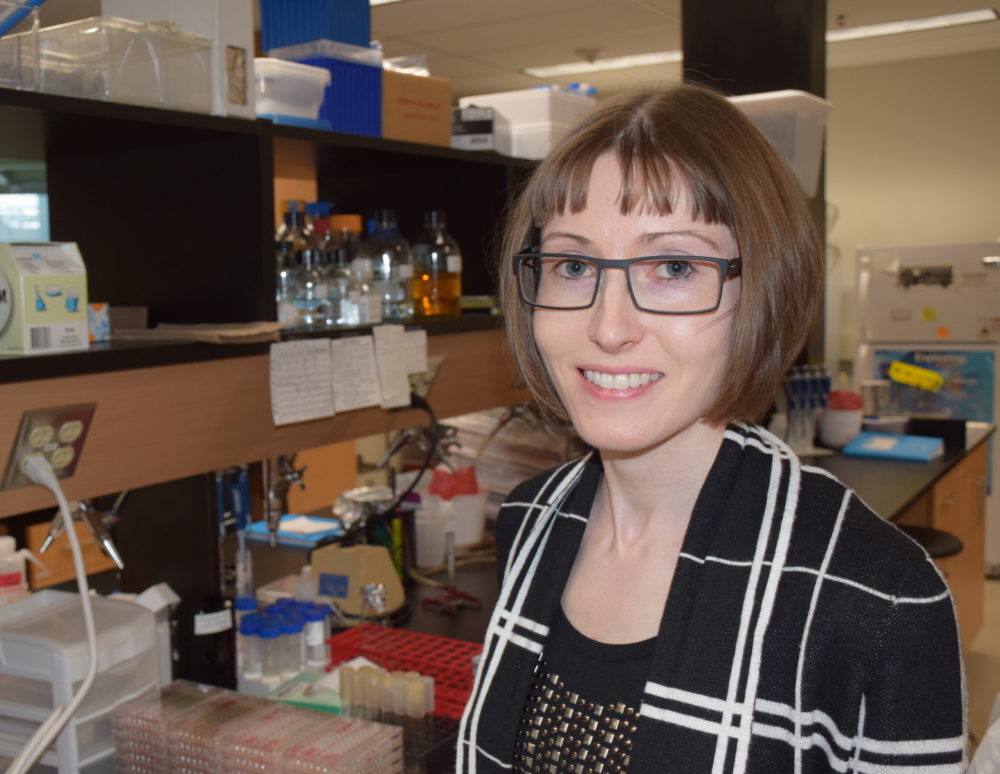
For some, recovering from the COVID-19 virus comes with chronic long-term health complications.
University of Guelph researchers and Canadian collaborators are tracking infection outcomes of people who have experienced SARS-CoV-2 infection to better predict and mitigate complications and to prepare for the needs of recovering patients.
U of G adjunct professor Melanie Wills and research associate Vladimir Bamm, both in the Department of Molecular and Cellular Biology, hope this longitudinal observational study will also help in identifying factors that trigger chronic symptoms and in discovering potential treatments.
“To the best of our knowledge, this research will be among the first to proactively investigate the post-infection health impacts of COVID-19,” said Wills, director of the G. Magnotta Lyme Disease Research Lab. “This research program will provide an epidemiological snapshot and a biochemical profile of patient recovery from COVID-19, which may be critical to inform mitigation strategies and survivor support systems.”
Wills appeared on CBC Radio’s Ontario Morning to discuss the research and CBC Kitchener-Waterloo also covered Wills’ research.
Given the high transmission rate of COVID-19, the development of post-viral chronic illness in certain populations and the lack of therapeutic options for these patients could exacerbate the current global crisis, added Wills.
The researchers will conduct an international survey to identify clinical characteristics of post-virus complications. They will compare blood markers of infection, inflammation and oxidative stress in participating COVID-19 patients to find biological markers that distinguish healthy and residually ill patients. They also hope to establish a repository of samples for future analyses.
The team will gather follow-up health data from participants at future intervals to examine changes in individuals over time and to compare diverse patient conditions.
This study will also enable future research projects on prognosis and mechanisms of long-standing disease, said Wills.
“We hope to make a difference for anyone who is still struggling with symptoms long after the acute stage of the illness.”
This research is funded by the University of Guelph COVID-19 Research Development and Catalyst Fund, with contributions from the New Brunswick Innovation Foundation for collaborators at Mount Allison University and Horizon Health Network.
Contact:
Melanie Wills
mwills@uoguelph.ca